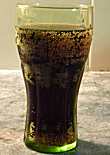The Irish government looks set to follow the lead of several other countries and introduce a tax on sugary soft drinks such as lemonade and cola. It is expected that the tax will be a 10% hike in excise duty which would add about 20 cents to the cost of a 250 cents bottle of soda. The government is torn between wanting to reduce the intake of fattening foods and drinks in the general population while also not wanting to damage employment and add to household bills.
cost of a 250 cents bottle of soda. The government is torn between wanting to reduce the intake of fattening foods and drinks in the general population while also not wanting to damage employment and add to household bills.
Efforts in Ireland to decrease the consumption of certain products by taxing them have had only limited success. Over the decades there have successive small increases in the price of cigarettes and alcohol. The tax hikes on cigarettes have very much outpaced those on alcohol and certainly do have an effect on consumption, especially when combined with the ban on smoking in the workplace and the current societal disapproval of tobacco. The overall momentum against smoking allowed successive governments to tax cigarettes heavily.
The same cannot be said about alcohol consumption. The policy of continually raising the tax on alcohol in small amounts has not had any great effect on consumption. Critics of the policy advocate for a single very large increase in tax on alcohol, perhaps even to increase the price by 50% or 100%, in order to have any kind of real shock impact. The revenue raised from this tax could be used for health education programs and even to fund hospital emergency departments that are inundated with alcohol-related patients every weekend.
The need for action in the food and drinks sector is now obvious. 60% of the Irish adult Irish population and nearly 25% of all 7-year-olds are classified as being either overweight or obese. By any measure this is a shocking statistic and is a recipe for a diabetes epidemic in the years to come, along with a whole other raft of health problems.
The introduction of a sugar tax on certain flattening products is likely a good idea, but unless it is of a sufficient amount then it seems certain that its impact will be minimal.
 Michael Green is Manager of The Information about Ireland Site
Michael Green is Manager of The Information about Ireland Site
In another instance of Ireland desperately chasing to become more English you publish distorted or completely fictional numbers about obesity. Firstly you should be able to publish the studies which produced these figures; secondly you should be able to display countless recent photographs of crowds or gatherings which support these claims visually. Sorry, but you can’t do either.
More BBC style pseudo -science justifying more taxes.
Another reason why national health care doesn’t work, everyone basically pays the same price. Left up to the private health care markets two people of he same age and basic demographics may have to pay different rates due to their healthy styles — too much sugar in ones diet causing excessive weight with a resulting higher personal insurance premium might cause one to change their life style on their own. Taxing such things only hurt the lower class individuals, who the government claim they are trying to help.